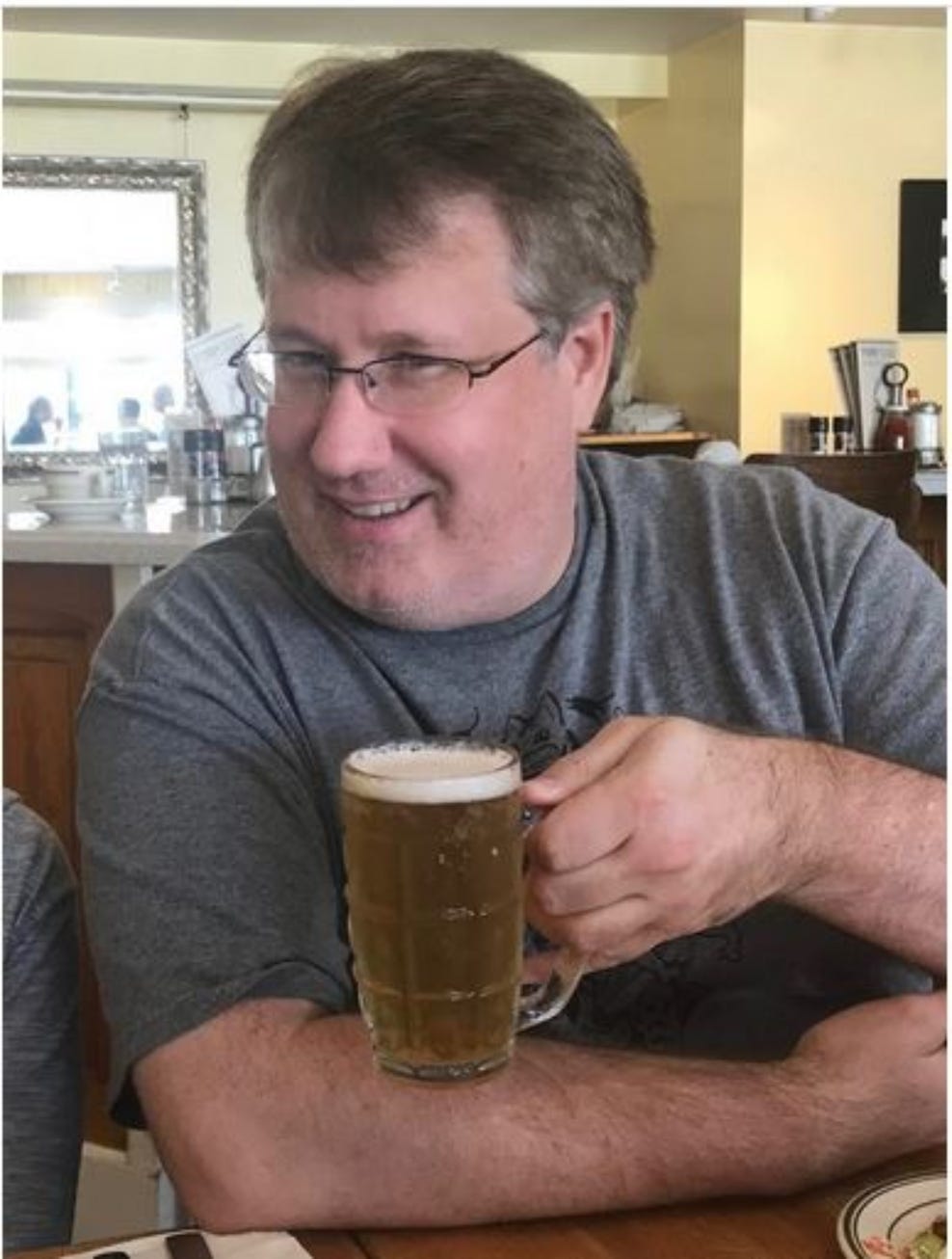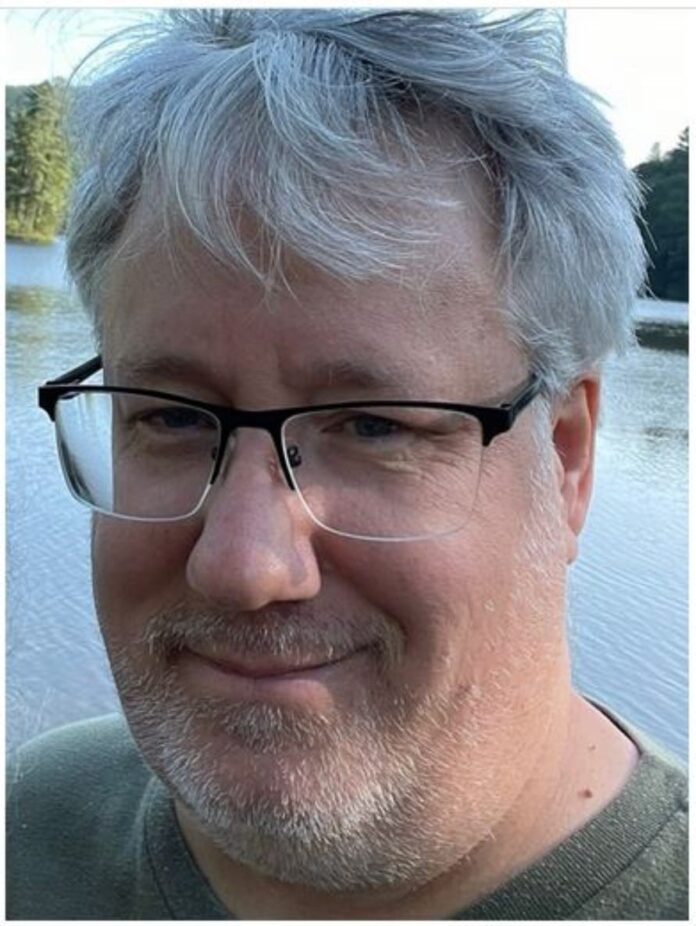An Interview With Susan Johnston
Believe in your story/vision — Even from my time in grad school, as a director, if you make a choice, stick to it. This is the story/the vision you want to tell, so tell it. In grad school, I was directing a short play by Euripides called Cyclops. I turned the cyclops into a metaphor for the male… member. My teacher noted I should be careful, that in some areas, a creative choice like that may not be accepted. It ended up going over very well.
Some writers and authors have a knack for using language that can really move people. Some writers and authors have been able to influence millions with their words alone. What does it take to become an effective and successful author or writer? In this interview series, called “5 Things You Need To Be A Successful Author or Writer” we are talking to successful authors and writers who can share lessons from their experiences. As part of this series, I had the pleasure of interviewing Todd Waters.
Todd is just a guy who likes to tell a good story. With a background originally in theatre, then moving to acting, writing, and directing short films, he brings a unique perspective to every script. He writes with the actor and the director in mind.
Thank you so much for joining us in this interview series! Before we dive in, our readers would love to “get to know you” a bit better. Can you tell us a little about how you got started?
I’d say my writing really started once I moved to Philadelphia to be with my girlfriend (now wife). At first, I pursued the “starving actor” path, but spent a little too much time on the starving part. I wrote a TV pilot, but I never really did anything with it. Then later I became part of a local comedy writing group, which led to independently collaborating with a friend of mine in the group. We split off from group, co-writing, co-directing, co-acting in several short films and eventually wrote and filmed our own TV comedy pilot.
Can you share the most interesting story that occurred to you in the course of your career?
My younger brother was working in New York for a music producer who had been approached to come up with a musical based on the life of the comic-book writer, Stan Lee. My brother suggested I write the treatment. Over the next few months, I submerged myself into musical structure and delved into the long career of Stan Lee — a quirky but interesting combination of research. I developed a synopsis, only to learn that this producer didn’t have the rights, he just needed a more… “general treatment.” So, after several drafts, my synopsis Stan Lee: The Musical became Four Colors of Escape. Unfortunately, it never went anywhere.
What was the biggest challenge you faced in your journey to becoming a writer? How did you overcome it? Can you share a story about that that other aspiring writers can learn from?
My biggest challenge was simply just getting started! After living in Philadelphia for a few years, I answered a call for someone wanting to write and film a TV comedy pilot. Here is a person with his own production company and has already brought onboard four other writers. I had nothing to lose. I used my acting and improv skills to get in the door. I made these guys laugh. From there it was just learning the format of putting my comedy into written form.
It has been said that our mistakes can be our greatest teachers. Can you share a story about the funniest mistake you made when you were first starting? Can you tell us what lesson you learned from that?
A couple of producers came to Philadelphia for basically a casual pitch session. For me, I been trying to turn any random thought I had into an idea: from comedy sketches to full screenplays. I attended the session with a whole list of ideas I thought could be hits. Proudly, I detailed my most recent idea about a man trapped in an asylum, trying to escape, only for another attendee to call me out, saying my idea sounded exactly like a movie currently in theaters at the time. I was humbled. This interaction helped me to refocus my thoughts and realize that having a bunch of random ideas jumbled in my head does not always make for a good story.
In your opinion, were you a “natural born writer” or did you develop that aptitude later on? Can you explain what you mean?
Oh no, never a natural writer. It took many years to get here. I’ve always had ideas. I’ve always kept a folder with scraps of paper with random notes, names, or cool scenes. It wasn’t until I started working with a group trying to create a TV comedy pilot that I finally found the fire in myself to start writing. Writing these numerous sketches and short scripts lead me to realize that I have stories to tell.
What are some of the most interesting or exciting projects you are working on now?
I’ve completed another one-hour TV pilot titled God Hunters. This is the logline: “A displaced Millennial and an Egyptian deity are tasked with hunting down rogue gods.” In the course of working on the world building, an idea for a novel emerged, taking place hundreds of years before the pilot. Then that turned into a trilogy and then a potential three-book prequel series! Ideally, I’d love to turn the pilot into a graphic-novel series first and see how it goes from there.

Here is the main question of our interview. Based on your experience, what are the “5 Things You Need To Be A Successful Author or Writer”? Please share a story or example for each.
- Know your story — Do your research. While working on the Stan Lee musical, I learned that older comics originally had a four-color scheme base. From this knowledge I refocused my synopsis to build on this idea, from the title to each part of the main character’s life focusing on a specific color.
- Believe in your story/vision — Even from my time in grad school, as a director, if you make a choice, stick to it. This is the story/the vision you want to tell, so tell it. In grad school, I was directing a short play by Euripides called Cyclops. I turned the cyclops into a metaphor for the male… member. My teacher noted I should be careful, that in some areas, a creative choice like that may not be accepted. It ended up going over very well.
- Take a break — I learned that often, walking away from a project for a little bit is a huge help. Many times, I find myself in the shower suddenly connecting threads. I’ve even been given a special waterproof writing tablet just for these moments!
- Don’t beat yourself up — It is very easy to give up. Getting rejection after rejection is soul crushing. But I have reached a point in my life where I want to try and get the rejection, rather than have my story to sit in my filing cabinet, never to be seen.
- Keep your expectations reasonable — Be realistic with yourself. I have delusions of grandeur all the time. It’s fun to speculate and dream. But I have taught myself to be reasonable. Every time I send script out to a contest, I let myself forget about it. So, when good news does come, it is a celebration.
What is the one habit you believe contributed the most to you becoming a great writer? (i.e. perseverance, discipline, play, craft study). Can you share a story or example?
Two of the bases of my writing comes from the comic-book writer Jon Bogdanove, who I reached out to while in high school. He told me, “Read more than comix” and “Live — and learn from life.” Even though I may have started reading mostly horror, I enjoy reading and pulling motivation from all sources. And my life has been quite the journey. Losing my biological mother when I was very young to a very rare disease and growing up in the South have led to many underlining themes and unique characters that creep into all my stories.
Which literature do you draw inspiration from? Why?
In my youth, horror novels were my first love. In fact, because my parents wouldn’t let me see the R-rated movie, one of my first horror novel purchases was The Keep by F. Paul Wilson. Then I moved onto Stephen King. Comic and graphic novels followed in earnest. I had a high-school English teacher tell me “Stephen King is the dessert. You need to read the meat and potatoes.” And from there: autobiographies and classic literature. Of course, I have to mention a few of theatre influences: from Molière, to Harold Pinter, to Christopher Durang. I find that reading from all genres adds to a healthy and diverse tapestry to weave ideas. For me, my brain loves to often draw completely different ideas together to form a new idea or to take my story in a direction I never would have considered before.
You are a person of enormous influence. If you could start a movement that would bring the most amount of good to the most amount of people, what would that be? You never know what your idea can trigger. 🙂
Empathy. A movement teaching, showing, spreading empathy. Especially in this day, I find it is too easy to disassociate and focus on oneself. I genuinely, and perhaps very naively, like to hope that most people have a very basic goodness, a desire to help others. But I don’t see it so as much as I would like. If I could influence others to be more open-minded to the struggles of others around them, that would be my movement.
How can our readers further follow you online?
Currently, I don’t have much of an online presence. But I’m slowly starting to embrace our technological landscape! I’m on Facebook, LinkedIn, and the IMDB. https://www.facebook.com/todd.waters.121 https://www.linkedin.com/in/todd-waters-72375813/ https://www.imdb.com/name/nm2769999/?ref_=nv_sr_srsg_2_tt_0_nm_8_q_todd%2520waters
About The Interviewer: Susan Johnston is a Media Futurist, Columnist as well as Founder and Director at New Media Film Festival®. The New Media Film Festival® — honoring stories worth telling since 2009, is an Award-winning, inclusive, and boundary-pushing catalyst for storytelling and technology. Susan was knighted in Rome in 2017 for her work in Arts & Humanity.
Todd Waters On The 5 Things You Need To Be A Successful Author or Writer was originally published in Authority Magazine on Medium, where people are continuing the conversation by highlighting and responding to this story.


